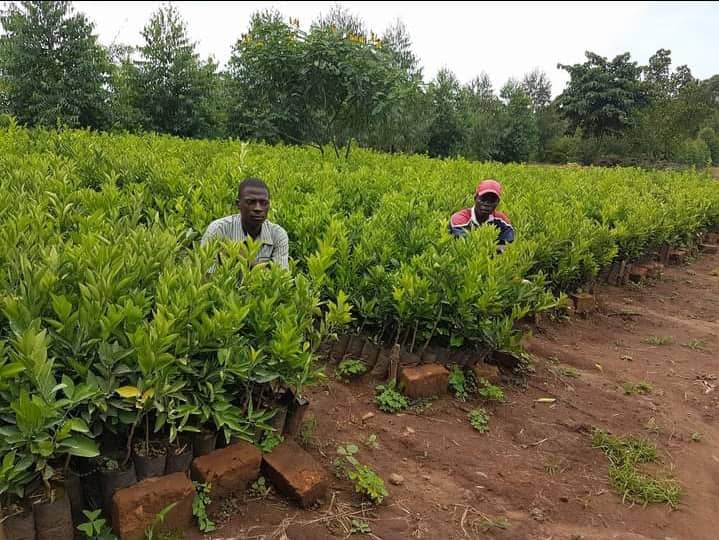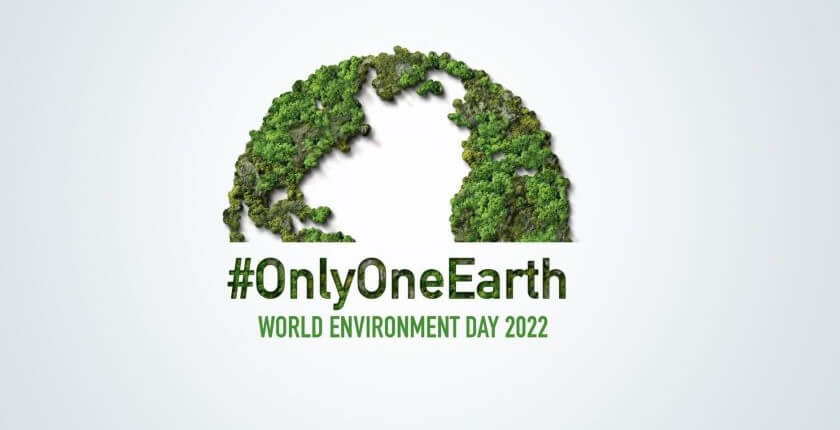Published on 5th/06/2022
As the world commemorates World Environment Day, we raise our voices to re-echo this year’s theme – “We only have one earth”. The OnlyOneEarth campaign calls for collective, transformative action on a global scale to celebrate, protect and restore our planet. At Regenerate Africa, this is at the crux of our beliefs and activities. We believe that there is only one earth, and hence all our actions should reflect the most fundamental principles of ensuring the earth’s ecosystem’s protection. Like Sir David Attenborough says in the Our Planet Documentary, ‘if we take care of nature, nature will take care of us.’ As such, development endeavours from agriculture, industry, infrastructure, natural resource exploitation, energy development, technological advancements and all other social and economic activities should be cognizant that there is only one earth. According to the 1987 Brundtland Report, sustainable development is ‘development that meets the needs of the present generations without compromising the ability of the future generations to meet their own needs.’ The future generations are not here to protect their interests; it thus falls on the current generations to be mindful of the coming generation – we are both relying on one earth to sustain our vast needs.
Today, the world faces many calamities and challenges affecting the quality of life for both humans and biodiversity. Most of these are from the mess we have created with nature, such as overexploitation of natural resources, climate change, environmental pollution, and destruction of the natural environs in a quest for ‘development’. The Living Planet Index, 2020 reported a 65% decline in population sizes of mammals, fish, amphibians and reptiles, while 43% of wetlands in Africa have been lost. Degradation alone affects up to 65 of Africa’s fertile land, and desertification affects 45 of the continent’s geographical area. Over three million hectares of Africa’s forests are lost every year, resulting in a 3% drop in GDP due to soil and nutrient depletion. The Water Resource Institute also notes that approximately 400 million in Sub-Saharan Africa (SSA), while the International Energy Agency estimates 77% of the people in SSA alone lack access to electricity. Therefore, there is a need to balance social and economic development agendas within the realms of environmental protection. These challenges are now more amplified due to the Covid-19 pandemic, from which the world is trying to recover. How do we protect the earth then?
We believe the answer lies in regeneration and therefore call upon all stakeholders to embrace it. The question is, how does regeneration work in environmental management? In the medical field, the National Institute of General Medical Sciences has defined regeneration as the natural process in which plants and animals replace or restore damaged or missing cells, tissues, organs, and even whole body parts to full function. Can this ‘regeneration’ occur in other natural environments? At the crux of regeneration is the belief that we have degenerated the earth beyond its natural regenerative capacity, with catastrophic repercussions for human and environmental health. The Intergovernmental Panel on Climate Change (IPCC) Report of 2018, for instance, noted that even if total global emissions were to be stabilised at 1.5 degrees Celsius above pre-industrial levels, the consequences would still be felt, including heavy rains and droughts, sea-level rise, land and forest degradation, and ecosystem damage. Hence, as humans, we need to do more to aid the earth’s recovery because anthropogenic activities are primarily blamed for global environmental crises such as climate change, according to the IPCC Report of 2007.According to youmatter, ‘designing for regeneration entails going beyond repairing nature. It requires reconnecting with our humanity, relearning how to communicate and find common ground on our differences, thinking reality is too complex for standard solutions to be scaled up, and neglecting the potential and fragility of bioregions with distinctive traits.’ Therefore, sustainability alone is not enough. We need regenerative cultures involving an overhaul of entire systems. There are currently many undertakings to deal with the protection of the earth, such as the energy transition movement, environmental social and governance (ESG) corporate benchmarks, the plastic ban measures, sustainable blue economy, biodiversity protection, reafforestation, and the circular economy, most of which are regenerative in nature.

There are many regeneration pathways for Africa to help the ‘earth support us’ in navigating famine, drought, diseases, poverty, water, food, energy insecurity, environmental degradation, and biodiversity loss. We should focus on the whole system’s transformation through multistakeholder engagement. Everyone should get involved, such as policymakers, women, youth, local communities, NGOs, the private sector, funding bodies, and education institutions – regeneration efforts should not be fragmented, but every person and institution should play a role. We should also integrate nature-based approaches in systems planning to reduce pressure on the existing natural resources and aid in the earth’s regeneration. Examples include reforestation, reafforestation and agroforestry measures, change in consumption patterns and supporting green technologies. Using a simple example of trees, if we planted more trees or replanted trees where they have been cut down, we could restore a considerable part of the ecosystem: There would be better rainfall patterns, more habitats for animals, maintaining the earth’s balance, more nature carbon dioxide sinks, improved aquifers, cleaner air, better food chains, medicines from the forests, and protection from solar radiation because ecosystems are deeply interconnected. By helping the earth regain its capacity to sustain our needs, we can kill two birds with one stone, ensuring its environmental protection and that humanity can meet its basic and development needs.
Regenerate Africa aims to help Africa transition to a regenerative economy to restore climate stability, end hunger, and rebuild deteriorated social, ecological, health, and economic systems that benefit people, nature, and the climate. Our mission is clear – “…to support increased adoption of regenerative human development approaches across Africa by building strategic partnerships, cultivating initiatives and innovations in production landscapes and supply chains, leading to healthier people, environment, climate, communities and sustainable livelihoods.” The organisation has identified key priority areas for action (as shown in the figure below) to support the earth’s regeneration and sustainable socio-economic transformations.

The above priority areas align with the 2030 Agenda for Sustainable Development Goals, more so – Goal 2. End hunger, achieve food security and improved nutrition and promote sustainable agriculture; Goal 5. Achieve gender equality and empower all women and girls; Goal 6. Ensure availability and sustainable management of water and sanitation for all; Goal 7. Ensure access to affordable, reliable, sustainable and modern energy for all; Goal 13. Take urgent action to combat climate change and its impact; Goal 15. Protect, restore and promote sustainable use of terrestrial ecosystems, sustainably manage forests, combat desertification, and halt and reverse land degradation and halt biodiversity loss; and Goal 17. Strengthen the means of implementation and revitalise the global partnership for sustainable development
Therefore, as we celebrate World Environment Day, let us remember that we cannot curtail development. However, we can change how development occurs to ensure thriving livelihoods for current and future generations without damaging the earth’s environment. Instead, we should help the earth regenerate – WE ONLY HAVE ONE EARTH.
The author is Regenarate Africa’s Natural Resources and Governance specialist. She is also a PhD student at the Centre for Energy, Petroleum and Mineral Law and Policy, University of Dundee, United Kingdom
Susan Nakanwagi

